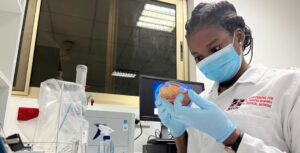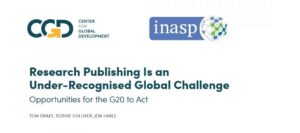Single dose of vaccine is not enough for measles eradication in Bangladesh
Research in Bangladesh has found that a quarter of children need more than single doses of the measles vaccine to be protected against the disease. This research supports the country’s recent move to a double-dose approach.
Measles affects 20 million people and kills about 242,000 people worldwide each year. It is the fifth largest cause of death globally among children below five years of age and, in the absence of proper immunization, it spreads quickly in a population. In 2005, the number of measles cases in Bangladesh was about 25,935. This decreased to approximately 2,660 cases in 2008 after the Measles Catch-up Campaign. But research in Bangladesh has shown that immunization programmes based on single doses of the vaccine are not sufficient.
Research carried out by Dr Sharmin Sultana, Medical Officer at Bangabandhu Sheikh Mujib Medical University, Bangladesh, and her colleagues found that about one quarter of the children who had just a single dose of the measles vaccine had not been totally immunized from the disease.
The research published in Bangladesh Journal of Medical Biology found that, although children were vaccinated against measles, many of them had not developed antibody response.
“In my research, I found that children had not been fully immunized by the single dose of the measles vaccine and that they required a second dose of vaccination to be better immunized,” says Dr Sultana.
Fortunately, Bangladesh already made second dose of measles vaccination compulsory in 2012, according to Dr Sultana, who added that, with the introduction of the second dose of the measles vaccine, Bangladesh stands a better chance of achieving the target of eliminating measles by the year 2020. Dr Sultana plans to conduct follow-up research soon to assess the efficacy of the vaccination after the administration of a second dose of the measles vaccine.
The research was conducted among 77 children of different age groups who had been administered with a single dose of the measles vaccine.
The article “Antibody Responses In Bangladeshi Children Following Measles Vaccination” by Sharmin Sultana, Shahina Tabassum, Afzalun Nessa and Munira Jahan from the Department of Virology, Bangabandhu Sheikh Mujib Medical University, Dhaka, Bangladesh appears on pages 13-17 in the latest issue Vol. 10 (1) 2016 of Bangladesh Journal of Medical Microbiology (BJMM). The article is made available online via the Bangladesh Journals Online (BanglaJOL) platform, which is part of the JOLs Project supported by INASP.
About the Journal
The Bangladesh Journal of Medical Microbiology (BJMM) is a peer-reviewed biomedical journal covering research and review articles on medical microbiology from Bangladesh.
About BanglaJOL
Bangladesh Journals Online (BanglaJOL), a part of INASP’s Journals Online project, is a database of journals published in Bangladesh, covering the full range of academic disciplines. The objective of BanglaJOL is to give greater visibility to the participating journals and to the research they convey. It is managed by the Bangladesh Academy of Sciences (BAS) and was developed in collaboration with INASP. There are now 141 journals on BanglaJOL listing over 20,000 articles.
About INASP
Founded in 1992, INASP is an international development charity working with a global network of partners in Africa, Latin America and South Asia. In line with the vision of research and knowledge at the heart of development, INASP works to support individuals and institutions to produce, share and use research and knowledge, which can transform lives.
INASP’s approaches are based on the core pillars of capacity development, convening, influencing and working in partnership. INASP promotes equity by actively addressing the needs of both men and women across all our work and addressing issues of power within the research and knowledge system. INASP has projects in 28 countries, supporting all aspects of research and knowledge systems, from facilitating the provision of information to researchers to helping parliamentarians and civil servants to use research and evidence in policy making.
Disclaimer: Research published in journals hosted on the BanglaJOL platform is selected by the journals in accordance with their own editorial processes and criteria. INASP and the National Science Foundation of Bangladesh provide hosting and guidance on good practices but are not involved in selection of research.
For further information
Thakur Amgai, Communications Consultant, INASP
Email: tamgai@inasp.info
Dr Sangita Shrestha, Communications Officer, INASP
Email: sshrestha@inasp.info

 Previous Post
Previous Post Next Post
Next Post


